Celebrating a Transformative Initiative:
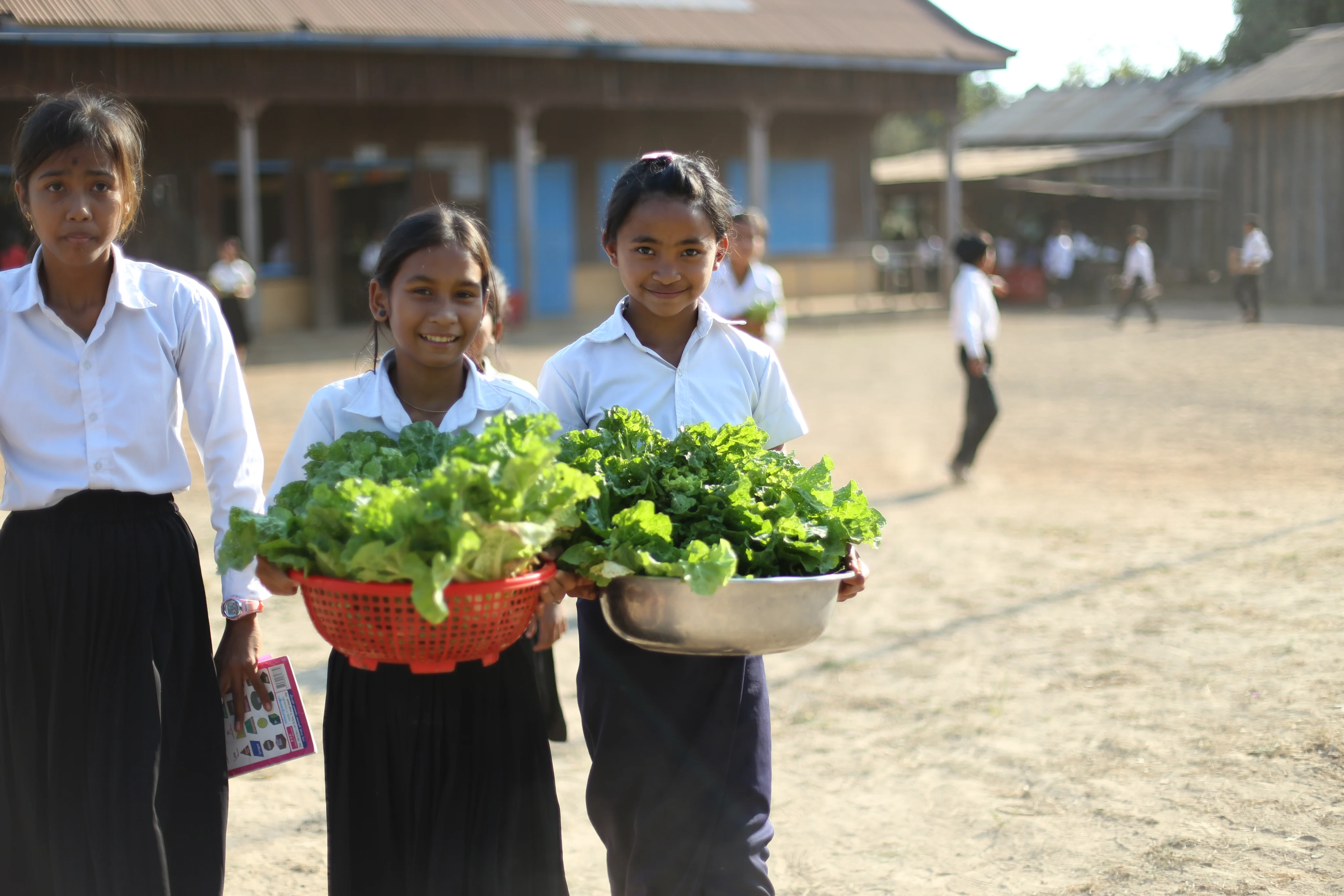
You may have heard about the success of Plan International Australia’s School Learning Garden program in Cambodia, but soon our innovative approach is set to make an even greater impact on the lives of some of the country’s most marginalized and disadvantaged children.
The initiative has officially been adopted by the Cambodian Education Ministry as part of the national curriculum for grades four to six!
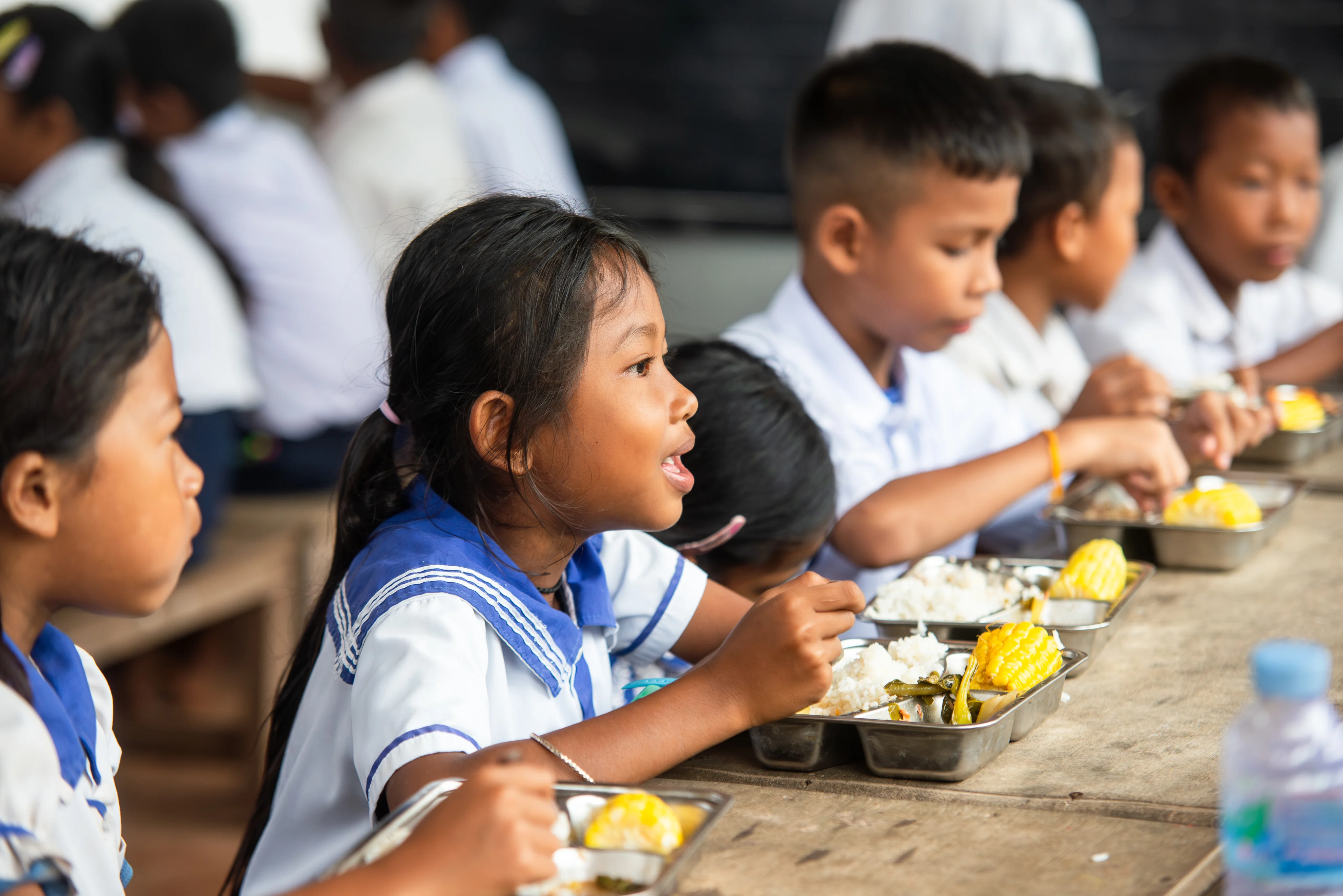
Growing Knowledge and Nutrition
The School Learning Gardens have already benefited over 25,000 primary school children across 90 schools in Siem Reap, one of Cambodia's poorest provinces, which is increasingly vulnerable to climate challenges. The program not only enhances educational outcomes but also improves nutrition through a school feeding partnership with the World Food Programme (WFP), providing students with a nutritious breakfast each day.
Imagine students learning science, literature, and math right in the gardens! By connecting classroom theories with practical experiences—like measuring plots, calculating water needs, and discussing the food system—children gain valuable knowledge while developing healthy attitudes towards eating. These lessons extend beyond the classroom, as students share what they learn with their families, fostering a culture of health and wellness within the community.
The School Learning Gardens were designed with guidance from celebrated Australian chef Stephanie Alexander and her Kitchen Garden Foundation, and since its launch in 2017, has been supported by the Australian Government’s Australian NGO Cooperation Program (ANCP) along with generous supporters of Plan International Australia.
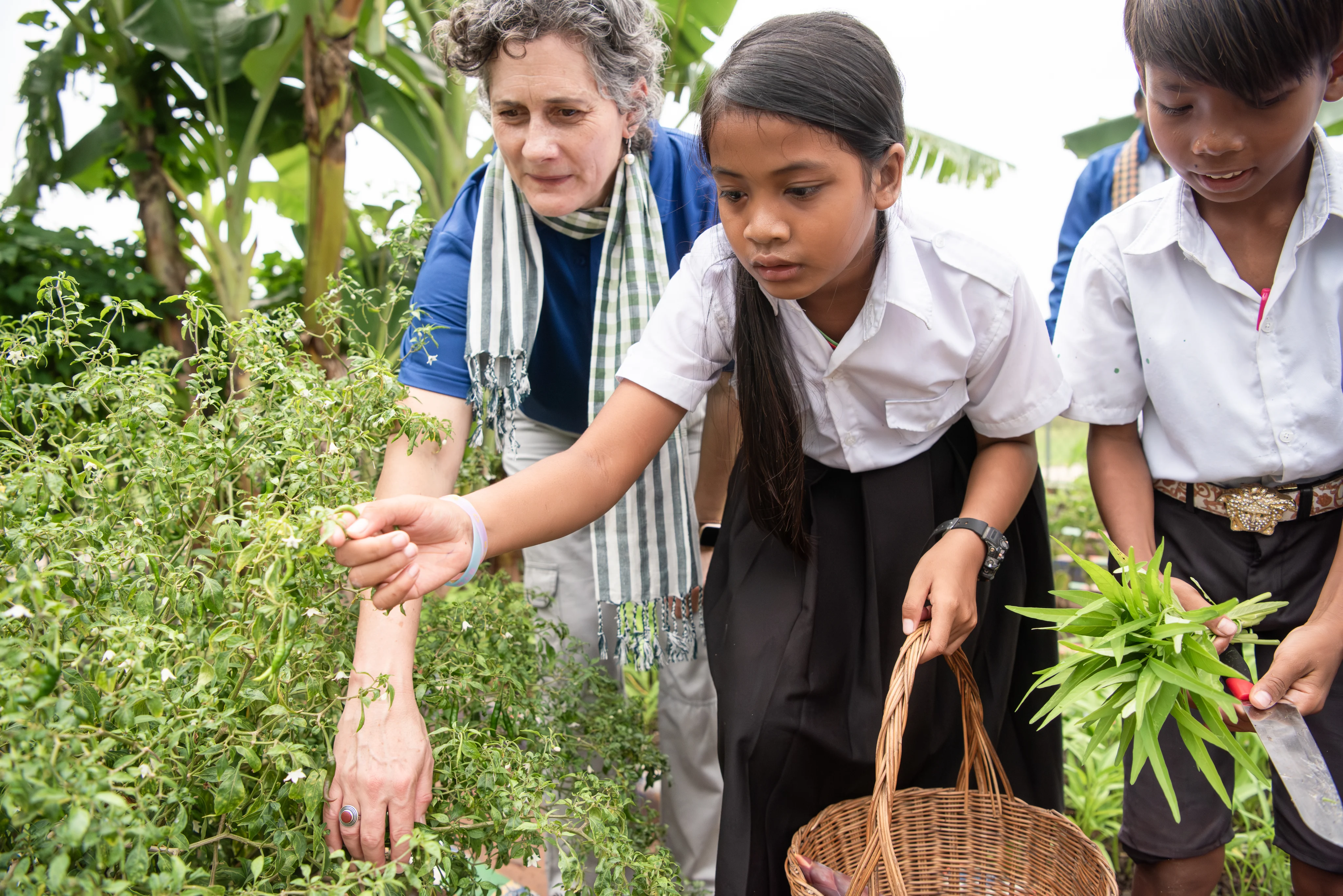
A broader impact
The School Learning Gardens also serve as a platform to challenge and disrupt negative gender norms and behaviours. Girls and boys have opportunities to try new roles, such as cooking in the kitchen, challenging traditional notions of what boys and girls can achieve, which not only empowers the students but also influences teachers, families, and entire communities to embrace more equitable attitudes. In addition, students also receive education on Sexual and Reproductive Health Rights (SRHR), fostering awareness and understanding of gender stereotypes and discrimination.
The results speak for themselves. Parents have reported improved student health, greater environmental awareness, and stronger community bonds. An astounding 97% of parents noted that their children enjoy school more because of the program, with many saying it has positively changed their children's attitudes towards healthy eating. Additionally, 73% of parents observed that their children are collaborating better, regardless of gender, with boys taking on roles such as cooking and cleaning at home.
As Cambodia grapples with high malnutrition rates, costing the economy over $400 million annually, the knowledge and skills fostered by programs like the School Learning Garden are vital. They equip students with the know-how to grow climate-appropriate crops and understand climate resilience — critical in a region facing the full force of the climate crisis, with prolonged droughts, erratic floods and storms and changes to the Mekong River wreaking havoc on food supplies for farmers.
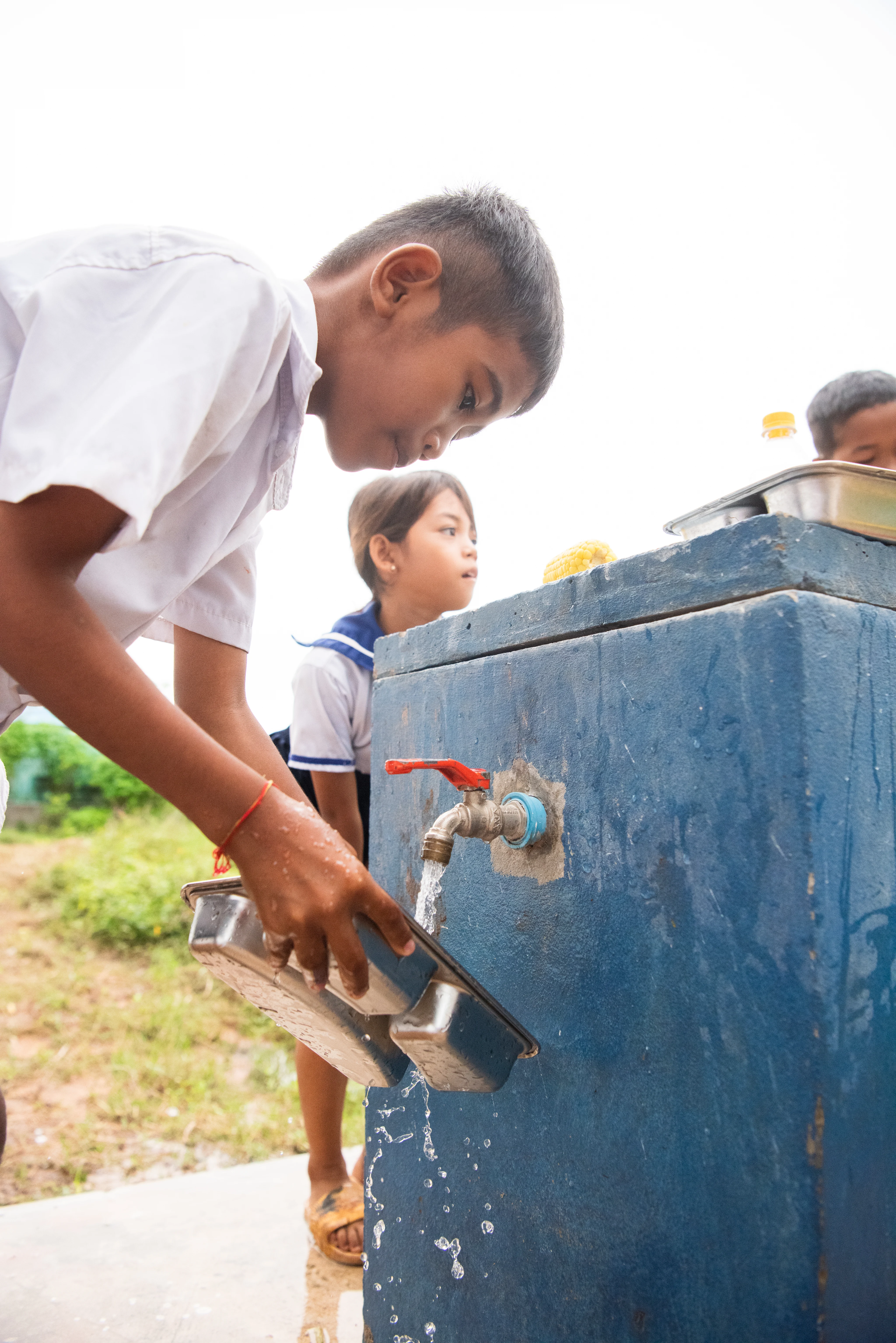
Witnessing change firsthand
Last month, Plan International Australia CEO Susanne Legena and ambassador Benjamin Law visited a school in Siem Reap’s Angkor Chum District to see our School Learning Garden program in action.
Susanne reflected on the effectiveness of the program:
Almost all of the teachers we work with have recorded increased attention and enthusiasm for learning, greater pride and ownership of accomplishments, and reduced classroom management and discipline problems amongst their students. They have also recorded improved reading, writing, maths, science and social science skills. Outdoor environments provide children with an opportunity to wonder and develop empathy and scientific knowledge and processes in a natural space, encouraging their feelings of belonging to the natural world and understanding their environment and the role climate change is having on it.”
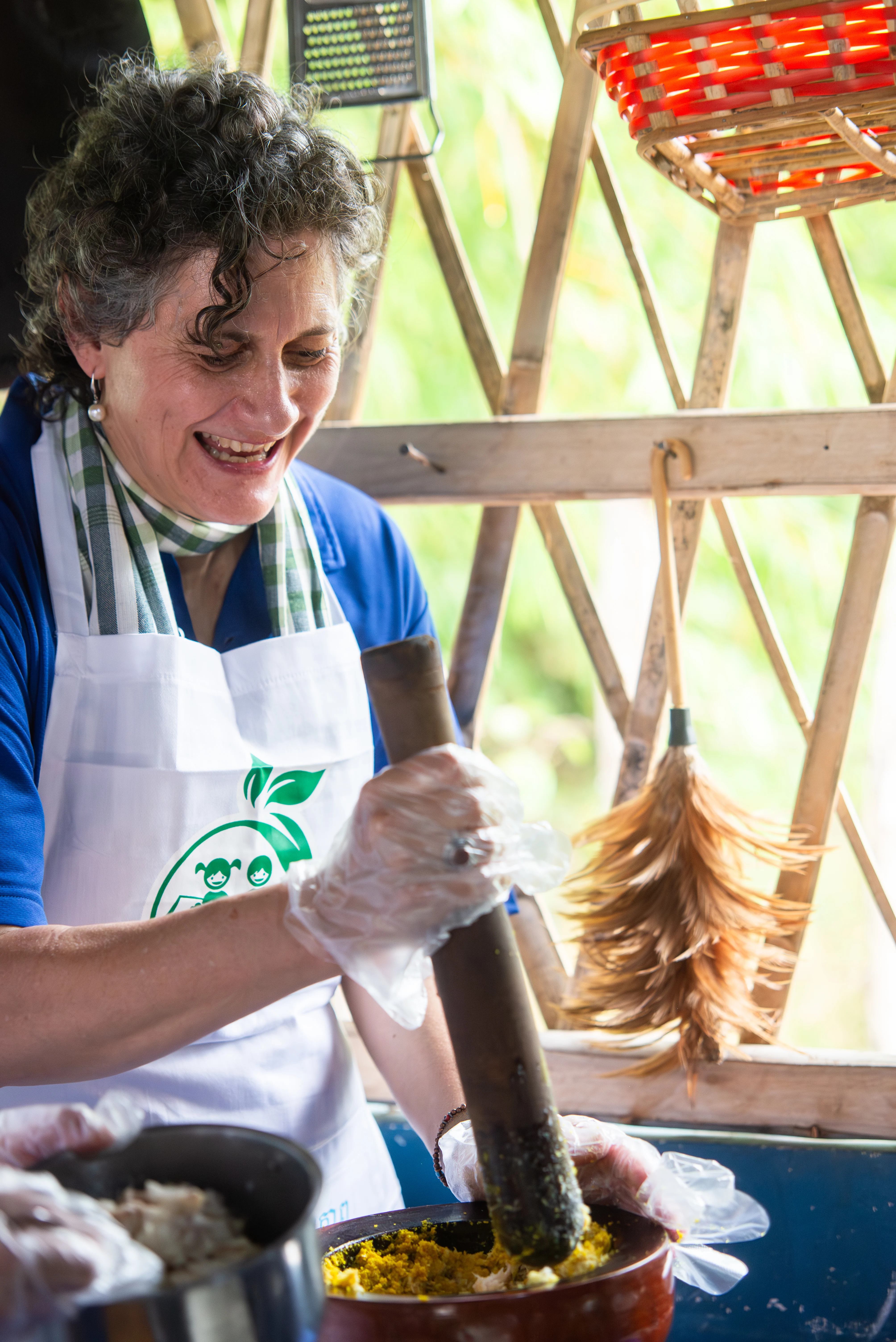
Ben was inspired by the enthusiasm of the students and the commitment of the teachers:
It was galvanizing to witness the impact such a practical approach can have for these students and their families, and it is so encouraging that the Cambodian Government has now recognized this and that we are going to see this scaled. The teachers I met spoke of other school principals from other far-flung part of Cambodia, travelling for hours and hours to come and see how the program works, and take it back to their own schools to replicate. The children were bright and so engaged and genuinely excited about learning and showing us their school and what they had learned.
“I have grown up around food, as the child of restaurateurs, and have seen how wonderfully the Stephanie Alexander model has been implemented within Australia’s own schools, which are significantly better funded and resourced that the schools Plan supports in Cambodia. So for me, I felt it is such a great and inspiring example of cultural exchange and the transformative, cross-culture power of gardens and education, and how we all benefit from being more connected to nature.”
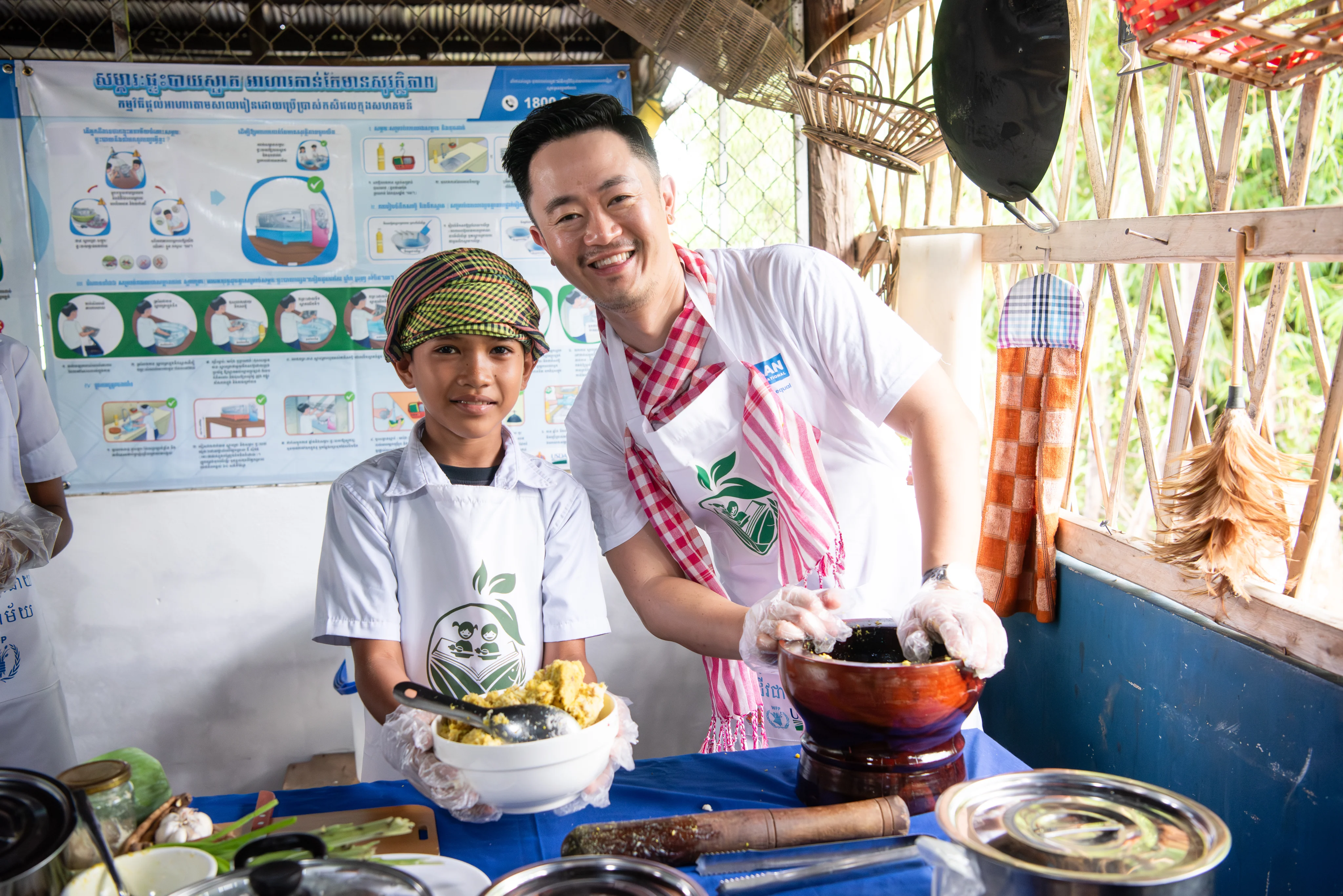
50 years of ANCP support
The School Learning Garden program exemplifies the transformative power of education, nutrition, and community engagement, and we are excited to see the impact it will have as part of Cambodia’s national curriculum.
In addition to funds donated by the Australian public, this program would not be possible without the generous support of the Australian Government’s ANCP program, which is currently celebrating 50 years of helping Australian INGOs to deliver life-changing programs to some of the world’s most vulnerable people.
In the last financial year, through our ANCP-funded programs, Plan International Australia reached 79,784 people.



